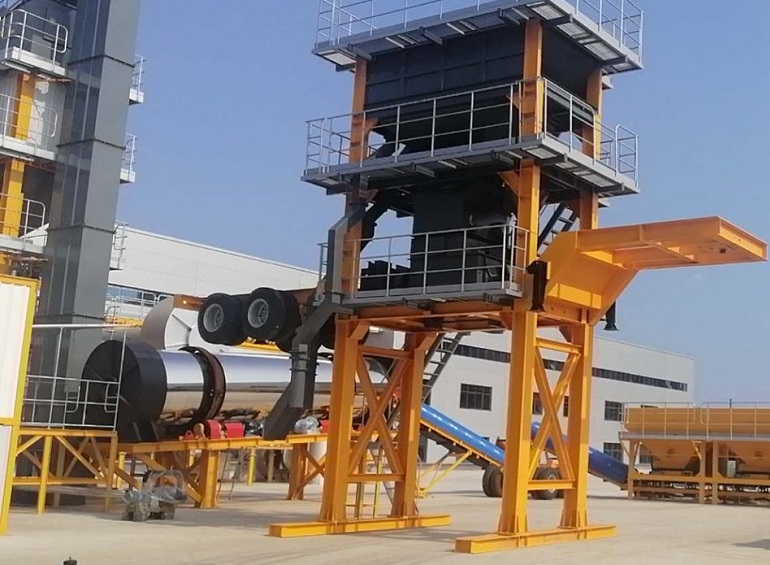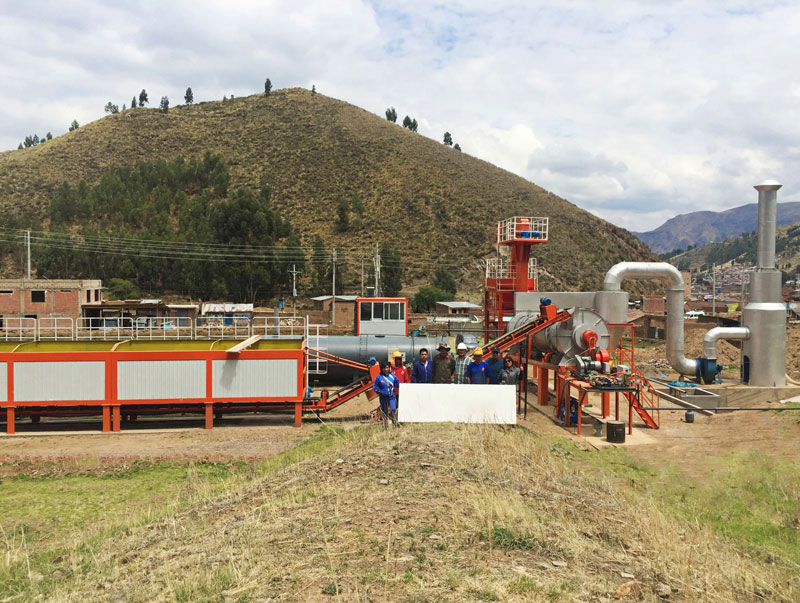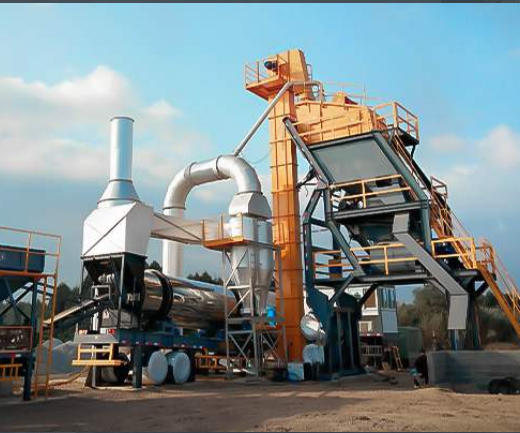Guide On Choose The Right Asphalt Batch Plants
Asphalt Batch plants are the more widespread type of asphalt plants in the world. Some of the characteristics of an Asphalt Batch plant are:
- They are used to make hot mix asphalt in different batches.
- They guarantee the highest level of flexibility in production and quality of the finished product – the specifications of the mix can be changed any time during the operation, while maintaining a high level of quality.
- The screens can be customized for required sizes.
The working of an Asphalt Batch plant is as follows:
The cold aggregate feeder bins store and supply cold aggregates to the drying drum. The drying drum removes the moisture from the aggregates so that they can bind easily with the bituminous material. Once the aggregates are heated and leave the drying drum, they are transferred to a vibrating screen where they are separated and stored in separate compartments as per the required sizes. The size of the screens and the number of screens may vary from asphalt plant to plant – the screens helps in the accuracy in selection of materials before mixing, ensuring consistent quality of the finished products. The storage compartments used to store the different aggregate sizes are known as hot bins. The aggregates, the bitumen and filler material are weighed separately and introduced into the mixing unit. The mixing unit is a twin shaft batch mixer designed to mix the weighed aggregates, bitumen and filler material. At the end of the mixing process, the bottom gate of the the mixer opens and the materials are loaded onto the waiting trucks or into storage silos. Asphalt suppliers reach the asphalt to the required project site.
Choosing the right Asphalt Batching plant is based on meeting the most important objective – to have a plant that is right for your requirements and helps to complete your projects in time without any hiccups. Various parameters need to be taken into consideration while deciding the right Asphalt Batch plants.
Type of Projects and Production Requirements
The foremost criteria to decide on the right Asphalt Batch plant is the project planning and long term production requirements that need to be satisfied with the plant. The type of projects determine the production of different products, production quantity and quality, and even the location of the asphalt plant.
Location – Stationary or Mobile
It would be ideal to go for a stationary Asphalt Batch plant, if the project is there for a few years – the cost of transportation will be less than the cost of mobilization. However, if the project requires moving the project sites a few times in a year, a mobile Asphalt Batch plant is worth considering. To be noted is the fact that a mobile Asphalt plant is more expensive than a stationary one for the primary reason that the plant and all accessories are made in an assemble and disassemble mobile mode.
Size of Asphalt Batch plants
The size of the Asphalt plant is totally dependant on the production and the product mix that is required for the type of projects envisaged.
Plant Customization
The ability to customize Asphalt plants is another important criteria towards choosing the right Asphalt plant. Though the Asphalt Batch plant provides for a varied product mix, it is very important to consider the best return on investment in the future. This would require that the plant allows for customization to vary the product mix according to changing product requirements. Some of the common accessories that should allow for customization are:
Cold Feed Bin: Standard configuration in most of the Asphalt plants are 3 or 4 bins. Ability to configure more bins would help increase the number of product mix and would be useful during wet and rainy conditions.
Storage of Asphalt: Increasing demand for asphalt can have an impact on the number and capacity of the asphalt tanks required. A higher capacity, or even better, the ability to increase the number of tanks, including the ability to use mobile storage tanks, would help in increasing storage of hot mix asphalt and avoid breakdown in asphalt production.
Burners: The type of fuel used and its availability is an important cost factor of Asphalt plants. Ability to use multiple available fuels would make an Asphalt plant more economical to run and be less polluting.
Multiple Raw material: Apart from the traditional raw materials used in an Asphalt plant, Reclaimed Asphalt Pavement (RAP) is now an important source as raw material for Asphalt plants. RAP is generated when asphalt pavements are removed for resurfacing, to access buried utilities, for reconstruction, etc. The right asphalt plant should have the ability to use both virgin and RAP.
Pollution Control: Asphalt plants need to adhere to changing pollution control standards, else could result in close down of the plant, causing enormous economic losses. This is an area that needs to be kept in mind in terms of customization.
Skilled Workmen
The level of skill availability is an important factor to be considered while determining the complexity of the Asphalt plant. Highly skilled workmen – both for production and maintenance – are required if the Asphalt plant is technology driven and highly automated.
Maintenance and After Sales Support
Asphalt Batch plants are batch driven and in constant production. Even the smallest disruption in production can cause project disruptions and economic loss. Maintenance is thus an important part of the overall production process. Availability of after-sales-support from manufacturers, ready availability of spare parts, availability of skilled maintenance personnel and the costs associated with it are important factors in keeping the Asphalt plant running.
New Plant or an Used One?
Buying a new Asphalt Batch plant or a used one is a decision made after a thorough cost-benefit analysis. The parameters discussed above are to be considered even for a used Asphalt Batch plant.



 RU
RU MM
MM AR
AR





